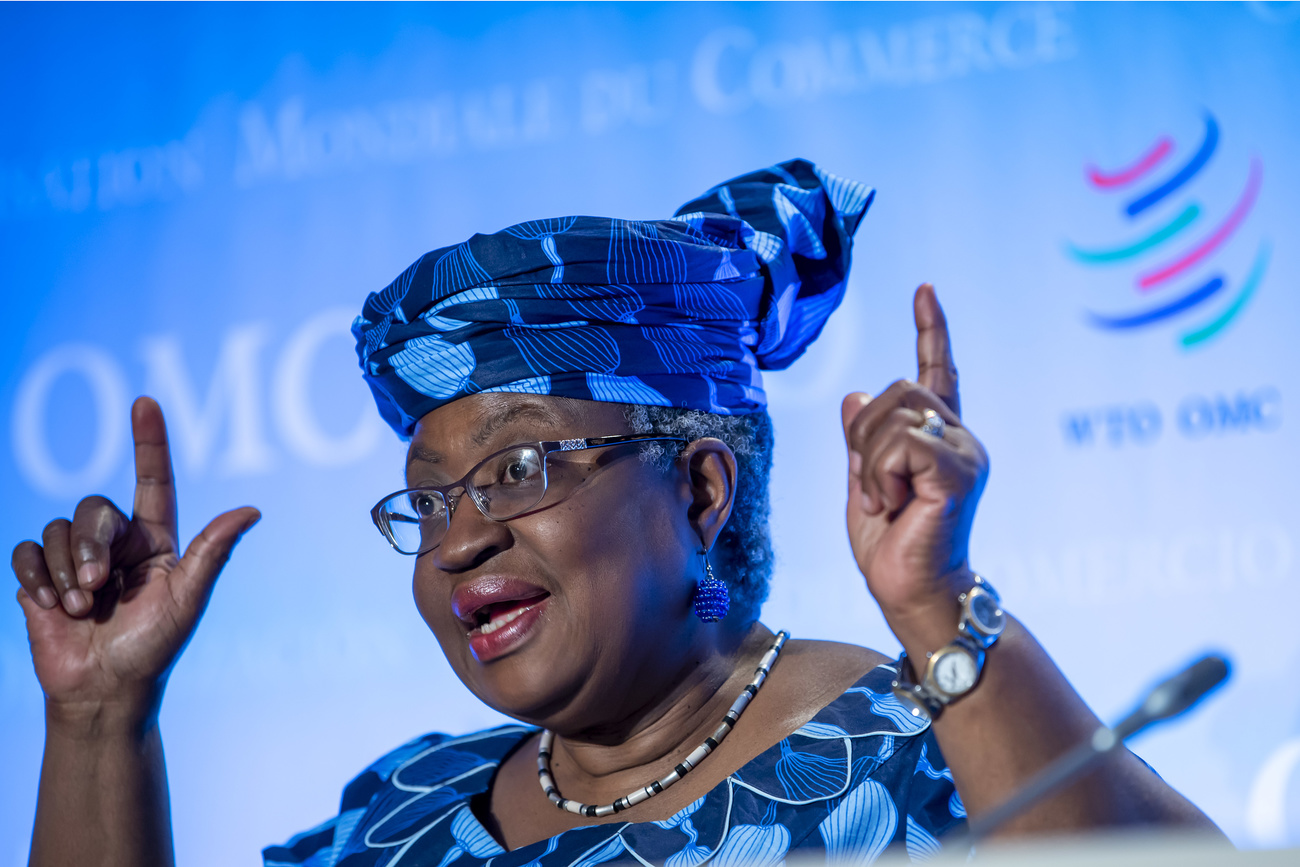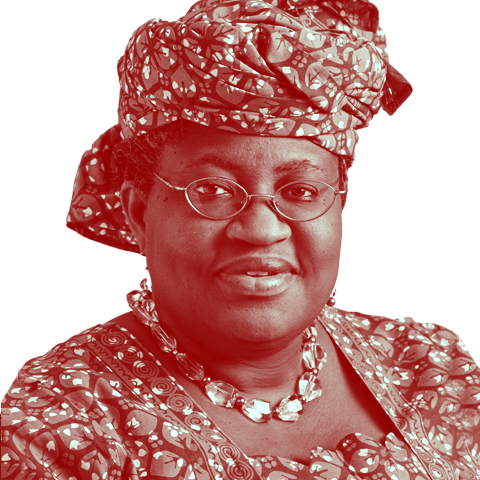Trade in the time of pandemics
With borders closed and global travel constrained, trade will help us find a way out of the pandemic argues new WTO Director-General Ngozi Okonjo-Iweala.
There has never been more of an imperative for multilateralism than COVID-19. All of humanity faces a common foe, a pathogen that has no respect for borders and rides roughshod over treaties and territories, tariffs, and trade routes. And the multilateral trading system is critical to fighting it, getting health products and practitioners to where they are needed, as soon as they are needed, in the most efficient way. Yet today’s global public health crisis is bookended by crises of trade.
Dr Ngozi Okonjo-Iweala is the former chair of GAVI, the Global Alliance for Vaccines and Immunization. Previously she served as the World Health Organization’s COVID-19 Envoy (ACT-Accelerator) and as the Africa Union COVID-19 special envoy. Okonjo-Iweala served twice as Nigeria’s finance minister and briefly as foreign minister. She is the first woman and the first African to lead the World Trade Organization.
At the outset of the pandemic a year ago, fearing scarcities of critical medical equipment, countries sparked a wave of protectionism that has since hampered the world’s ability to fight the virus. Demand for basic but essential products like masks, gloves, and surgical gowns rose to unprecedented levels, in some cases by several thousand percent. In response, around one hundred countries and territories imposed export restrictions to safeguard these supplies for their own use, according to the International Trade Center. Many hoarded supplies in excess of their needs.
Rules not respected
Though several countries have since removed export restrictions and liberalized trade at least for some medical supplies and products, there are still restrictions impeding trade and access to these products. Many World Trade Organization (WTO) members did not respect rules that require notification, transparency, and temporariness of export restrictions, although notification has improved over time. The same pattern repeated with hospital equipment. In addition, supply chain disruption was another constraining factor. As a consequence, trade clogged or slowed at the precise moment when frictionless trade was not only an economic imperative but a moral and public health imperative, as well.

More
World Trade Organization gets first female and first African leader
Supply constraints, protectionism, and vaccine nationalism also characterize the market for the emerging crop of vaccines. As was the case with medical supplies and equipment, states acting in their own perceived self-interests are in danger of acting in the interests of no one, with consequences that will echo throughout the remainder of the COVID-19 response and in the world that comes thereafter. A recent academic study commissioned by the International Chamber of Commerce posits that if wealthy countries are fully vaccinated by the middle of this year whereas poor countries with limited access to vaccines are frozen out, the cost to the global economy would exceed $9 trillion (CHF8 trillion), greater than the combined GDP of Germany and Japan. And wealthy countries would bear half these losses. The losses would be significantly lower if developing countries are able to vaccinate at least half of their populations by the end of the year.
We must not let these patterns repeat again, and time is of the essence. It starts by recognizing that the multilateral trading system is fundamental to fighting the current COVID-19 pandemic, preparing for future pandemics, and stimulating the global economic recovery.
Reasons why
First, no country can rely exclusively on its own supply of health products, so committing to their free flow is essential. Protectionist behavior during a pandemic that morphs into “beggar thy neighbor” policies hurts not just the neighbor but the protectionist country, as well. Trade barriers distort markets and create an uneven playing field, with the potential to reduce production when increased supplies are needed. Like other goods, vaccines depend on functioning supply chains for equipment and ingredients that may be made in several countries, and they may be even more reliant on technology transfer and know-how. To assure equity and affordability of access to the poor and rich alike, to save lives, and protect everyone, flexibilities in current WTO rules governing trade in medical products during a global public health emergency should be used to the maximum extent possible. In addition, countries must eliminate or suspend tariffs, streamline their regulatory frameworks and expedite all trade processes and procedures to help ease free and fast movement of health products and services to the ultimate beneficiary populations.
Second, to ensure that the multilateral trading system works smoothly and flexibly during a moment of global crisis, the WTO should play a more active facilitation role. It should work in close partnership with other relevant international organizations such as WHO, COVAX and the International Finance Institutions (IFIs) — to provide solutions to the pandemic. Too often these organizations work in silos making the sum of their efforts less than the whole.
Third, the WTO needs to plan and prepare for future pandemics instead of merely reacting to them. Having learned from problems that have emerged during COVID-19 such as a scarcity of tests, treatments, and vaccines, the WTO should be ready to assist its members in solving these practical problems. For all the attention given to vaccines, we must also attend to promising new therapeutics and diagnostics. The existing flexibilities under the WTO TRIPS Agreement should be applied broadly to ensure they are user-friendly and able to solve the challenges of access and affordability. For vaccines, intellectual property protections are not the only constraint. Without knowledge transfer, the elimination or suspension of tariffs, and the streamlining of regulatory procedures from relevant authorities, we will not achieve the rapid roll out that is needed. We can and must find a “third way” that allows access without discouraging continued investment in research and development. The Serum Institute of India’s agreement with AstraZeneca and Oxford is exemplary of how, with sufficient coordination and cooperation, generic manufacturers in developing countries can license these products within the current system.
Igbo saying
Finally, the global economic recovery will depend on trade. And this demands change, and soon. The multilateral trading system must shrug off its remaining cloak of restrictions and prohibitions. Countries should support a reformed, restored, and fully functioning WTO to ensure a level playing field for the multilateral trading system and thereby rebuild trust amongst its members.
In my mother tongue, Igbo, we have a saying: “Aka nni Kwo aka ekpe, aka ekepe akwo akanni wancha adi ocha.” If the right hand washes the left, and the left hand washes the right, then both become clean.
It may seem counterintuitive, with borders closed and global travel more constrained than any of us can remember, but trade will help us find a way out of the situation we are in. It is only by working together, by one hand washing the other, that we can chart a way out and through the crisis.
The views expressed in this article are solely those of the author, and do not necessarily reflect the views of SWI swissinfo.ch. This article first appeared on Think Global HealthExternal link.
SWI swissinfo.ch publishes op-ed articles by contributors writing on a wide range of topics – Swiss issues or those that impact Switzerland. The selection of articles presents a diversity of opinions designed to enrich the debate on the issues discussed. If you would like to submit an idea for an opinion piece, please e-mail english@swissinfo.ch

More
Will the United Nations soon be obsolete?

In compliance with the JTI standards
More: SWI swissinfo.ch certified by the Journalism Trust Initiative









You can find an overview of ongoing debates with our journalists here . Please join us!
If you want to start a conversation about a topic raised in this article or want to report factual errors, email us at english@swissinfo.ch.